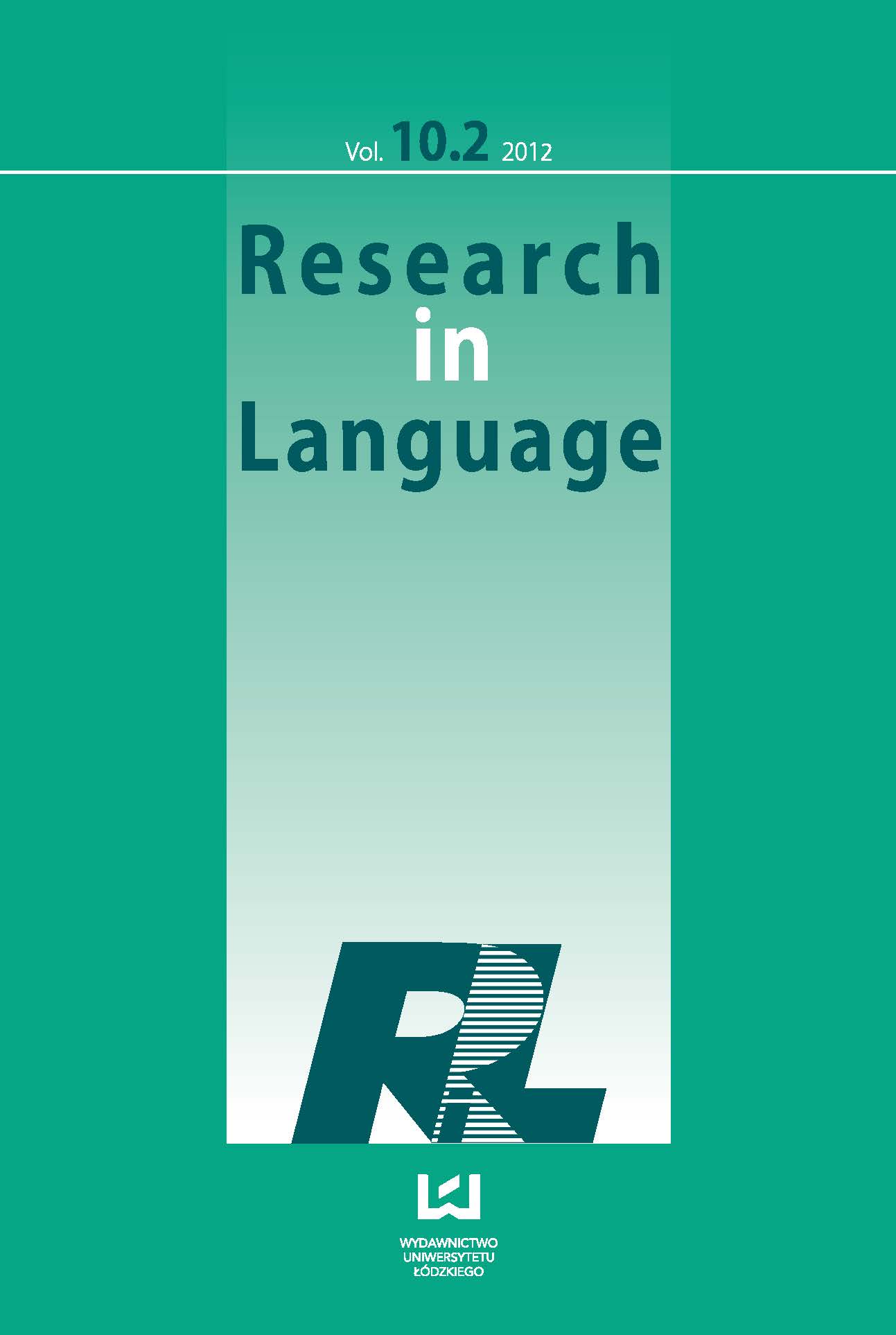The Effect of Word-Initial Glottalization on Word Monitoring in Slovak Speakers of English
DOI:
https://doi.org/10.2478/v10015-011-0030-0Abstract
The study investigates the impact of glottal elements before word-initial vowels on the speed of processing of the phrases taken from natural continuous speech. In many languages a word beginning with a vowel can be preceded by a glottal stop or a short period of creaky voice. However, languages differ in the extent of use and functions of this glottalization: it may be used to mark the word boundary, for instance, or to add special prominence to the word. The aim of the experiment was to find out whether the presence of the glottal element can influence reaction times in a word-monitoring paradigm. Users of different languages - Slovak and Czech learners of English, as well as native speakers of English - were participating in perception testing so that the influence of the mother tongue could be determined. The results confirm the effect of both glottalization and the L1 of the listeners. In addition, a significant effect of test item manipulations was found. Although the phrases with added or deleted glottal stops displayed no obvious acoustic artefacts, they produced longer reaction times than items with naturally present or absent glottalizations. We believe that this finding underlines the importance of inherent stress patterns, whose alterations lead to the increase in processing load.
References
Bissiri, M. P., Lecumberri, M. L., Cooke, M. and Volín, J. 2011. The Role of Word-Initial Glottal Stops in Recognizing English Words. In: Proceedings of the 12th Annual Conference of ISCA Interspeech: 165-168. Florence: ISCA.
Google Scholar
Buxton, H. 1983. Temporal predictability in the perception of English speech, In: A. Cutler and D. R. Ladd Eds.) Prosody: Models and Measurements: 111-121. Berlin: Springer-Verlag.
Google Scholar
Cruttenden, A. 1994. Gimson’s Pronunciation of English. London: Edward Arnold.
Google Scholar
Dilley, L. Shattuck-Hufnagel, S. and Ostendorf, M. 1996. Glottalization of word-initial vowels as a function of prosodic structure. Journal of Phonetics 24: 423-444.
Google Scholar
Forster K.I. and Forster, J.C. 2003. DMDX: A Windows display program with millisecond accuracy. Behavior Research Methods, Instruments, & Computers, 35/1: 116-124.
Google Scholar
Gordon, M. and Ladefoged, P. 2001. Phonation types: a crosslinguistic overview. Journal of Phonetics 29: 383-406.
Google Scholar
Hawkins, S. 2003. Roles and representations of systematic fine phonetic detail in speech understanding. Journal of Phonetics 31: 373-405.
Google Scholar
Kilborn, K. and Moss, H. 1996. Word Monitoring. Language and Cognitive Processes 11/6: 689-694.
Google Scholar
Kohler, K. 1994. Glottal stops and glottalization in German. Phonetica 51: 38-51.
Google Scholar
Local, J. 2003. Variable domains and variable relevance: interpreting phonetic exponents. Journal of Phonetics 31: 321-339.
Google Scholar
O’Connor, J.D. 1980. Better English Pronunciation. 2nd Edition. Cambridge: CUP.
Google Scholar
Przedlacka, J. and Ashby, M. 2011. Acoustic correlates of glottal articulations in Southern British English. In: Proccedings of ICPhS XVII: 1642-1645. Hong Kong: IPA.
Google Scholar
Redi, L. and Shattuck-Hufnagel, S. 2001. Variation in the realization of glottalization in normal speakers. Journal of Phonetics 29: 407-429.
Google Scholar
Schwartz, G. 2011. Final devoicing in Polish English: Segmental or prosodic error? Presentation at Accents 2011, Lodz: UoL.
Google Scholar
Wells, J.C. 1990. Longman Pronunciation Dictionary. Harlow: Longman.
Google Scholar
Downloads
Published
How to Cite
Issue
Section
License

This work is licensed under a Creative Commons Attribution-NonCommercial-NoDerivatives 4.0 International License.










